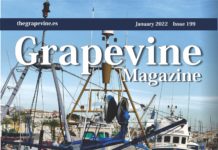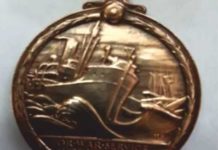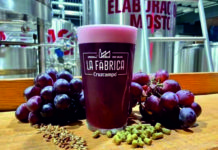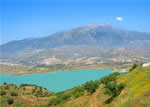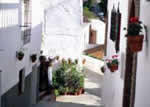
Lee Bum-Suc may be a completely ordinary name, as unremarkable as John Smith or Ann Jones, if you happen to be in the right country and speak the right language. A Korean gentleman bearing that name worked in the United Nations for some years, and may have wondered why so many English speakers winced slightly when saying his surname. Itchianos is, I’m told, an unremarkable Japanese name. However, if your Japanese parents have moved to an English speaking country and given you that name, it would be…a pain in the bum.
First names can be adapted: Christina becomes Christine or Chris, Chrissie or Tina. If Christina doesn’t like her name at all she might use a middle name, a nick-name or just another name. But surnames attach themselves to i.d. and to family history with all its emotional ties. Poor Mr Itchianos, who lived in Australia, was plagued by pissed teenagers who rang him up in the middle of the night and shouted ‘Well, scratch it!’ down the phone. Asked by reporters why he didn’t change his name he said defensively, “My father was Itchianos, my grandfather was Itchianos. I will not insult their memory.” Poor guy. He should really have gone ex-directory though.
I changed my name. Not by marriage, by choice. Why? The original was double-barrelled. Unless you are Welsh, or move in circles where they are the norm, double-barrelled surnames are crap. People think you are rich or posh or trying to be. The deed-poll was a doddle: voilá, a new identity. I loved the anonymity of Jones. And then I landed up in Spain…where everyone has two surnames.
It’s not quite the same of course. A Spaniard’s two apellidos are a combination of the ‘first’ surnames of the father (first) and the mother (second). That is, Fabio, the baby son of Gabriel Garcia Rodriguez and Rosa Ruiz Lopez will be Fabio Garcia Ruiz. It seems a lovely fair system, taking something from both sides of the family, but don’t worry, it’s still thoroughly patriarchal: the second apellido comes from the maternal grandfather at which point the female line is cut out. Still, the system is elegant: the paired surnames to give formality and extra clarity, the first for general use.
Even English-speakers, with rare exceptions (like the Phoenix family) tend not to make up surnames, but in the English speaking world first names are open house. The rich and famous seem to feel they have to prove themselves with something really distinctive, from ‘Liesha’ to ‘Zowie’. Most parents chose something that already exists, but spellings can trip them up. Letizia, Prince Felipe’s wife, has her name spelled with a z because the registrar was Italian and in Italy that spelling is the norm. Oprah Winfrey’s parents had chosen the obscure but extant bible name ‘Orpah’, but the midwife couldn’t spell it. Oprah is a genuinely new name, and given the fame she’s achieved, one that will probably stick fast.
Most parents worry about their choice of name, believing your name will affect your childhood and your chances in life. We considered Spanish names for our kids, but worried that we couldn’t know what their ‘tone’ was. I was told that Guillermo, the Spanish equivalent to William, is terribly old fashioned. I like the name, I knew a 6 year old Guillermo back in the UK, but I didn’t want to risk naming a son the equivalent of Archibald. We didn’t fancy following the name-them-after-the parents tradition, which is very strong here, and I don’t like combination names, preferring the British option of a ‘spare’ but non intrusive middle name. It does seem odd that the combination names include a bit of gender-bending: I know a Mari-José (from her mother and father of course) and Spain’s president is José Maria. Imagine Mr Brown being Gordon Irene Brown? Or Mr Cameron being David Janet? It’s startlingly odd.
I liked quite a lot of Spanish boys’ names, which sound simply exotic to me: Javier, Álvaro, Ismael. But the girls’ names are fairly nasty. There are just too many Mari-somethings out there, and the rest have this Victorian-style religious tone, that makes me think of ‘Prudence’ or ‘Chastity’. Purificacion; Inmaculada; Concepccion, Dolores have pretty shortenings but rather odd associations to a British parent. Especially Dolores: fancy naming your baby daughter ‘pains’. I assume it refers to the agonies of Christ, but it’s not what you think of as an attractive name!
We didn’t want to give a kid too English a name either. Take a name like Gwyneth or Edward, or Kyle: I think the Spanish would be baffled. I quite liked Lily, but it doesn’t seem to have a Spanish equivalent. Worse, the pronunciation would tend towards ‘Lí-lí’, making the child sound like a Panda. Zoe pronounced with Spanish phonetics would be the nasty Thow-eh. Even something as simple as Will bemuses many: most say “Wheeel”! It could be even worse: how do you know that your nick-name isn’t a nasty dialect slang word? I’ve been told of an Asian lad growing up in Scotland with the name “Ha-shit” (or something sounding like that): that’s not a mistake you’d want to make for your own child.
So we went for the safe option: a couple of names that exist in both languages. We only got all individual about the spelling; not changing Cs for Ks or Es for Ys, as is trendy, but sticking to the traditional English spelling; a link for our kids to their roots. Rebecca Isabel was registered with no fuss, so I was surprised when the Juzgado de Paz put the breaks on for Sophia Hannah. She wanted to check that with Torrox that the names were permissible. In the end we were granted the old English spelling of Sophia (and the Jewish middle name, ‘Hannah’), though whether she’ll thank or curse us for it is another matter.
Apparently, there used to be strict lists of allowable names but, with the influx of foreigners and foreign ideas, things have loosened up. Choices are more open, but names are expected to exist as names for human beings, as opposed to names for fruit (Peaches, Apple), places (Brooklyn) or natural phenomena (River). This might seem unreasonably paternalistic: why shouldn’t someone name their child something meaningful and attractive like Summer, or River, just because it doesn’t currently exist as a name? What’s the difference, after all, between that and such traditional names as Dawn, June or Hope?
On the other hand, such a system does save children from ludicrously foolish or ignorant parents getting carried away. My ex-bosses mother was a school governor. She met a seven year old boy called Horsun. Now, the fun the kid would have at puberty would be quite bad enough in itself. But the reason for the name was much worse than a desperate attempt at originality. His surname was Cart. The parents should have been prosecuted for cruelty.
Worse still, a British registrar told friends of mine that she’d objected to a little girl being named “Vagina”. The parents, in spite of their mutual carnal knowledge apparently thought this was the name of a climbing plant. At least this particular Registrar had the gumption to say no and send them back to the baby-name guides.
What’s in a name? Not a great deal. But think about it before you go changing yours to Engelbert Humperdink…especially if you’ll have to spell that out in Spanish.



